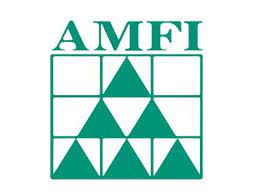With generating and preserving wealth, it is also equally important to de-risk our life from unforeseen uncertainties (to the extent possible). These uncertainties have the potential to derail our financial life, totally or partially depending on the gravity of the event. These risks can be done away with by ensuring our-self.
Insurance is a means of protection against financial loss. It may not be exactly possible to replace the loss of an asset but insurance provides financial support to replace the lost asset. What is Insurance - the company (insurer) provides insurance to the insured (policyholder) to compensate in the event of occurrence of loss, in exchange for payment of a small amount, by insured, called premium. The premium payment is usually annual, however, the frequency may change depending on the terms of the policy.
We have broadly categorized insurance into two Life and General
Let's take Life Insurance first.
In today's world, we have two major risk in our life:
- Risk of living too short
- Risk of living too long
The above two risks are very critical in life and needs to be consciously addressed by every individual. Whilst the first risk can be covered through Insurance contract, the second can be insured through proper investments throughout our life.
If you are a key earning member in the family and the family is solely dependent on you for their livelihood then it becomes all the more important to insure your life. We suggest life insurance cover which is approximately 12-15 times of your annual income. The underlying logic behind this multiple is that in case of loss of life, the amount received by your family from insurance company can be parked in fixed deposits which can fetch interest almost equivalent to your present monthly income. While loss of your life is irreplaceable, but the cover ensures that your family is not financially deprived-of due to your absence.
The insurance cover once taken has to be reviewed periodically. As your income increases, cover also has to increase. We suggest to review this cover every 5 years. Add-on insurance cover can be taken to maintain 12-15 multiple on enhanced income.
The basic version of Insurance is called a Term Plan which only provides death cover with no life benefit. Following are different types of policy:
Health insurance safeguards you and your family against the financial burden of medical emergencies. With rising healthcare costs, having health insurance ensures that unforeseen medical expenses do not derail your financial planning.
Types of Health Insurance Policies:
- Individual Health Insurance: Covers medical expenses for a single individual.
- Family Floater Plan: Provides a shared coverage amount for all family members under one policy.
- Critical Illness Insurance: Offers a lump sum payout if diagnosed with a specific illness such as cancer or heart disease.
- Top-up and Super Top-up Plans: Additional coverage over your base policy for higher medical expenses.
- Group Health Insurance: Offered by employers to employees as part of their benefits package.
Why Health Insurance Is Crucial:
- Covers hospitalization costs, reducing out-of-pocket expenses.
- Offers access to quality healthcare without financial stress.
- Provides tax benefits under Section 80D of the Income Tax Act.
- Includes preventive care options like annual health checkups in some plans.
Recommended Coverage:
To ensure sufficient protection, opt for coverage that is 5-7 times your annual income. This ensures your medical expenses are adequately covered without impacting your long-term financial goals.
Periodic Review:
Like life insurance, health insurance policies should be reviewed periodically. As healthcare costs and your family size increase, your policy coverage may need adjustments.
By securing a comprehensive health insurance policy, you ensure financial stability during medical crises, safeguarding your future and that of your family.
General insurance provides coverage for a wide range of risks beyond health, including property, vehicles, and unforeseen incidents. It helps protect your assets and mitigate financial loss due to accidents, damage, or theft.
Types of General Insurance Policies:
- Motor Insurance: Covers damages or theft of your vehicle, as well as third-party liabilities.
- Home Insurance: Protects your property against damage from natural disasters, fire, theft, and other risks.
- Travel Insurance: Provides coverage for medical emergencies, trip cancellations, and lost baggage during travel.
- Consumer Electronics Insurance: Covers the repair or replacement of electronics like phones, laptops, and other devices.
- Personal Accident Insurance: Offers financial support in case of an accident leading to disability or death.
Why General Insurance Is Important:
- Reduces financial burden in case of property damage, accidents, or theft.
- Provides peace of mind knowing your assets are protected against unforeseen events.
- Offers tax benefits under Section 80D of the Income Tax Act for certain policies.
- Ensures financial stability during emergencies, preventing significant financial setbacks.
Recommended Coverage:
Opt for coverage that matches the value of your assets and liabilities. This ensures that you\'re adequately protected in case of an unexpected event.
Periodic Review:
Review your general insurance policies regularly to make sure your coverage remains adequate as the value of your assets or risks change.
By securing comprehensive general insurance, you protect yourself from unforeseen financial losses and ensure the safety of your valuable assets.


